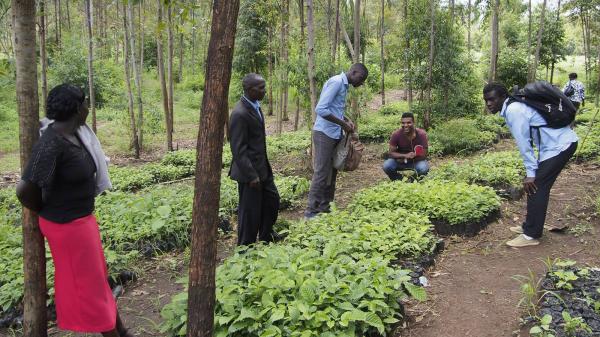
Project Goal: 500,00 € Financed: 500,00 € Missing: 0,00 €

Kijani restores forests and empowers farmers in Kenya. With €500, you enable us to give ten farmers an acre of land each within a degraded forest area, and train them to intercrop indigenous trees. After three years, the piece of land is restored and we continue to plant more trees on it, while the farmer moves on to the next project.

Kenya, Africa




The Kenyan government gave Kijani 100ha of land for reforestation. But only the inclusion of economic benefits for the rural poor can ensure the long-term survival of this reforestation effort. Kijani is now working to give forests lasting value with tangible economic benefits for the surrounding community.
We are piloting a simple, cost-effective agroforestry conservation model which can achieve sustainable forest management and helps farmers, and especially youth from the local community, to improve their livelihoods. Agroforestry is a land-use management system whereby trees are grown alongside crops. It is a combination of both forestry and agricultural technologies, which in the long-term gives birth to diverse, productive, profitable, and sustainable systems of land-use.
Furthermore, we are looking for synergies between the ecosystem and business models. Apart from the agroforestry approach, we are also exploring shrub species that protect our nurseries from rats and whose leaves can also be used as fodder or medicinal tea; or bees, whose forest flower honey brings financial income, and which keep elephants away from the reforestation area.
Thank you for your feedback! We'll reply on your comments as fast as possible.
